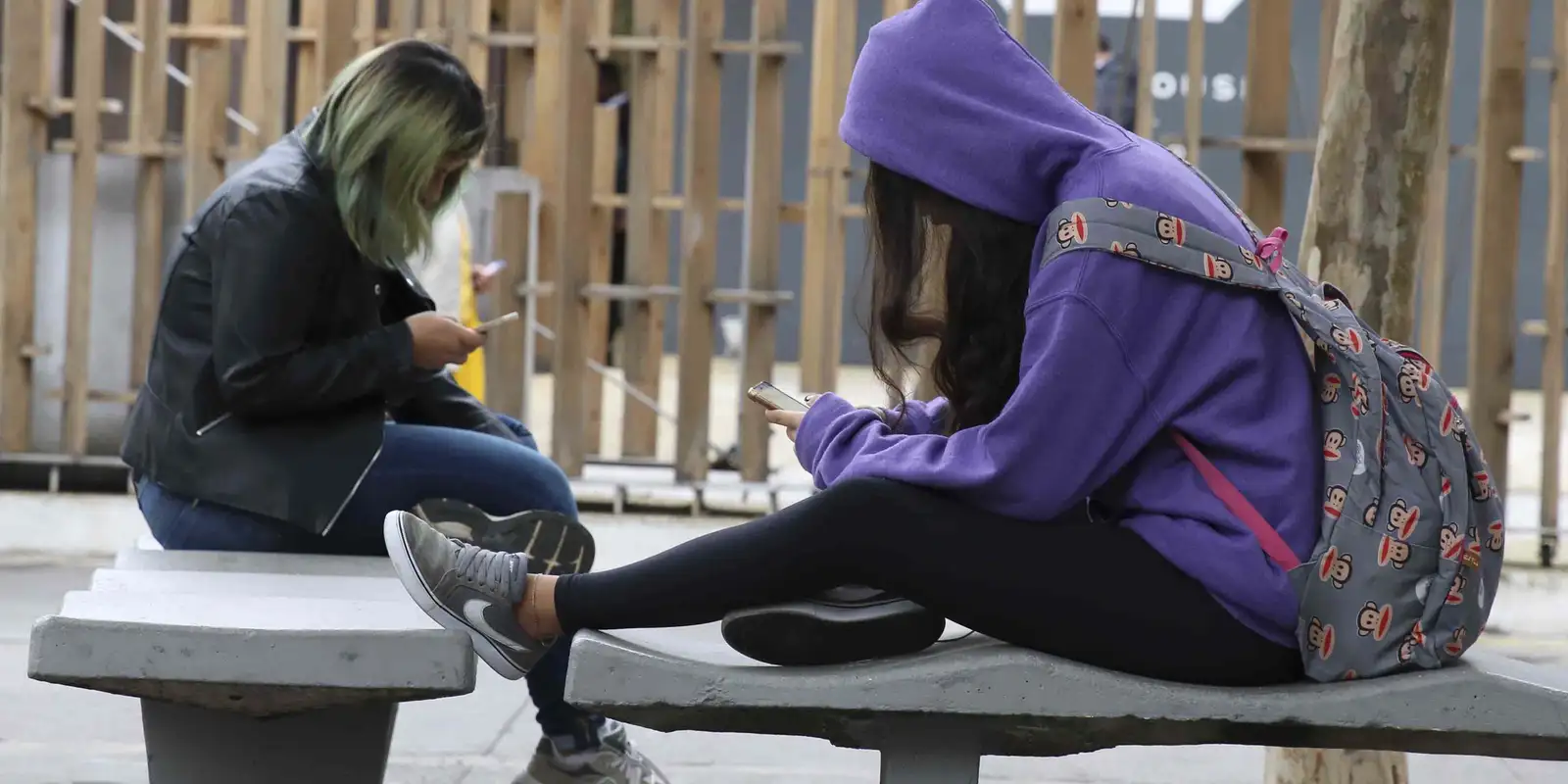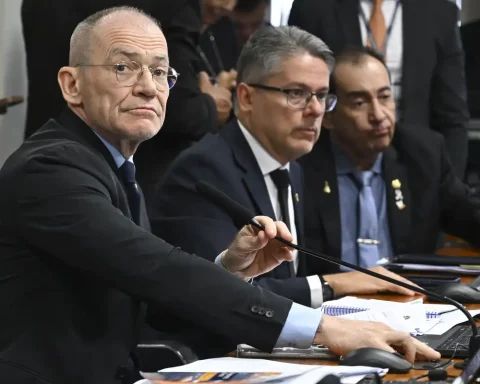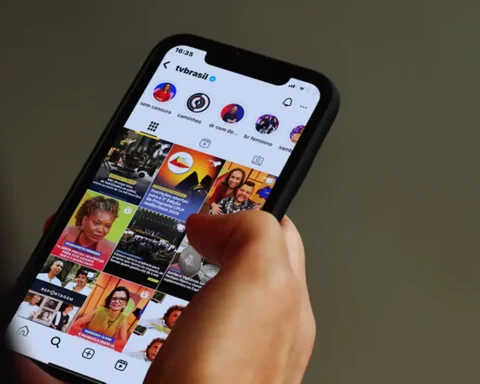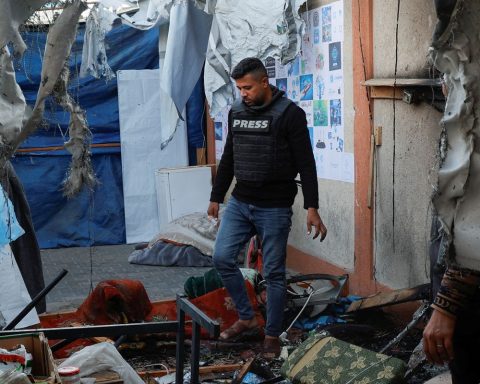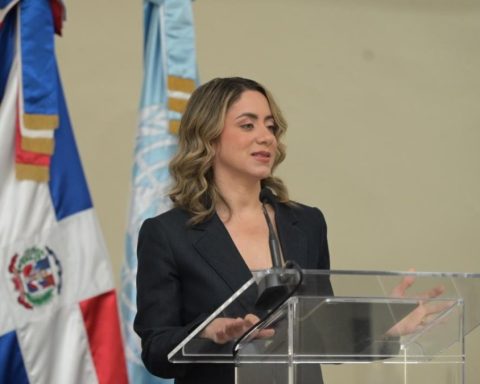Putting restrictions on the use of cell phones into practice in schools across the country will be a challenge, according to teachers and students. Although the ban is well regarded by a large part of society and the school community, the law sanctioned this Monday (13) will face challenges such as the lack of infrastructure in educational institutions, for example, to store cell phones safely; teacher training, so that they do not abandon the pedagogical use of new technologies; and teaching, so that classes are attractive to students.
After be processed by the National Congressthe law that prohibits the use of cell phones in public and private schools, both in classrooms and during recess and breaks, was sanctioned by President Luiz Inácio Lula da Silva. The devices continue to be permitted for pedagogical use, that is, when authorized by teachers as a classroom instrument.
The main justification for the new law is to protect children and adolescents from the negative impacts of screens on their mental, physical and psychological health. The measure is not exclusive to Brazil, countries such as France, Spain, Greece, Denmark, Italy and the Netherlands already have legislation that restricts cell phone use in schools.
According to the president of the National Confederation of Education Workers (CNTE), Heleno Araújo, teachers, in general, support the ban on cell phones in classrooms, but point out some challenges in putting the measure into practice: “Where will this equipment be located? ? At what point in class do you need your cell phone so that the content can be easily understood by the student? When will it be used? When will it be stored again? And then you come to the public school and ask, is the public school equipped for this? Are you safe in storing the student’s equipment without damaging it or losing it? Are you able to make a plan where you know when the equipment can be used to improve knowledge and when it should not be used?”, asks Araújo.
According to Araújo, there should be a greater discussion in education networks. “All of this would need to be deepened. A law that comes from the top down, without strengthening the democratic management of the school, without strengthening the participation of segments of the school community discussing the issue, will become unfeasible, because you will create more problems, you will not be able to comply with the law as it determines”, he says.
Lack of interest
For students, it is not enough to just ban cell phones, school and classes need to be more attractive. “It is not banning cell phones in the classroom that will ensure that students pay more attention in class or become more interested in school. What will bring this solution that we are looking for so much, which is to bring the interest of our class back into the classroom, is to bring a more technological environment to the school, inside the classroom, is to improve the dynamics and the teaching of our classes is to guarantee a more playful training for our students”, argues the president of the Brazilian Union of Secondary Students (Ubes), Hugo Silva.
“I will definitely prefer, as a student, to look at ten TikToks than to attend a class that I find boring or that I think does not bring me anything. So, I think we need to have this discussion. If the class is interesting, more interesting than TikTok, if the subject I’m learning there I consider more important than watching these ten TikToks, of course I’m going to put down my cell phone and pay attention in the classroom”, he says. the student.
According to Silva, restricting cell phone use can also contribute to increased inequality, especially between public and private schools, in places of greater vulnerability and less access to technology. “We even believe that in many territories and in many places, the only technology that secondary students have access to is through their cell phones. If we remove this device from the classrooms, we can even prevent these students from having access to any type of technology.”
Understand the new law
Discussions about the legal ban on the use of cell phones have been going on for more than a decade. The bill that has now been sanctioned was originally proposed in the Chamber of Deputies by federal deputy Alceu Moreira (MDB/RS), in 2015. The text was, in turn, inspired by another project proposed by deputy Pompeo de Mattos (PDT/ RS), which was approved by the Education and Culture Committee and received a favorable opinion from the rapporteur at the Constitution, Justice and Citizenship Committee. In 2010, at the end of the legislature, having not been approved by the House, it ended up being archived.
The original text prohibited the use of portable electronic devices in classrooms at both basic and higher education establishments, allowing only pedagogical use authorized by teachers.
The text approved by the Federal Senate, which has now become law, restricts the prohibition to basic education, that is, from kindergarten to secondary education. The text also presents exceptions, allowing the use of devices by students in schools to guarantee accessibility, inclusion, to meet health conditions and guarantee fundamental rights.
The text also stipulates that education networks and schools must develop strategies to deal with the psychological suffering and mental health of children and adolescents, as well as access to inappropriate content. Schools should establish listening environments for students who experience suffering as a result of nomophobia, which is the fear of being away from their cell phone.
Already in practice
The restriction, which now becomes national, it’s already reality in some places and schools. The state of São Paulo approved similar measure at the end of last year, to be valid from this year onwards.
In the city of Rio de Janeiro, the ban has been in effect since August 2024due to a decree from the city hall. The cell phone is kept and can only be used for educational activities, with the permission of the teachers.
According to the president of the Teachers’ Union of the Municipality of Rio de Janeiro and Region (SinproRio), Elson Simões de Paiva, the measure favors socialization:
“We know that today there are schools that prohibit its use even during recess, in order to allow children and young people to get back to doing what they are no longer doing, which is socializing. His socialization is being done via cell phone, it is no longer person-to-person. So, the issue of cell phone use being more controlled within schools is also important.”
Like Araújo, he also fears that now with the national ban, there will be an overload of teachers. “Who will control this? Because teachers, either they teach, or they monitor whether the student is using their cell phone or not”, he says and adds: “[O professor] requests that the cell phone be used in the classroom that day. But what then? What will this control be like for the student to return this cell phone or stop using the cell phone in another class that will not use this material, this instrument?”
In the municipality’s private schools, according to the director of the Union of Basic Education Establishments of the Municipality of Rio de Janeiro (Sinepe Rio), Lucas Machado, restrictions were already in place even before the municipal decree. “In Rio de Janeiro, this novelty is non-existent, because the process of private schools is very smooth, and this has already been adopted, it has been happening for over a year. Many private schools, since last year at least, have already prohibited, according to their school regulations, the use of cell phones in the classroom, for non-pedagogical purposes”.
Machado highlights, however, that a national law can tighten the different realities found in schools. “When you generalize, you are making school regulations more difficult,” he says. “According to the existing regulations, you had, for example, the practice of children with some type of disability, some type of difficulty, you could, in your regulations, adjust this so that you could meet these children’s needs. It was very easy to work with. Now, based on a federal law, perhaps there is some type of restriction that we have to be careful about in order to meet the needs of the law.”
We failed to incorporate technologies
According to professor at the Faculty of Education at the University of Brasília Gilberto Lacerda Santos, restrictions both in Brazil and in other countries are, in fact, a failure of educational systems and society to understand and be able to actually incorporate the potential of technology into education. .
“It is a self-recognition of the failure of school institutions, of society as a whole, to understand technologies and their potential in education, and, above all, to integrate them into teacher training. Because the whole problem lies in the fact that our teachers do not know how to deal with technology in the classroom and with everything that technology offers”, he says.
According to Santos, technologies give ordinary citizens “a power they never had. The power to become more informed and autonomous. A power to communicate freely. And, above all, the power to express yourself. It turns out that, in order for us to be able to inform ourselves in a way consistent with ethical principles, for us to communicate appropriately, and, above all, for us to express ourselves adequately, we need excellent basic education. We lack basic education. So we don’t know how to use technology, we end up becoming slaves to it. Young people are completely lost, clicking, liking, liking, sharing untrue news, because there is a lack of basic education. And this is a key problem that we have not yet managed to resolve as a society.”
For Santos, the solution is to invest more and more in teacher training. “The teacher is a key element in the success of the school. So we need to do what hasn’t been done, what we haven’t been able to do, which is to instrument him adequately, train him adequately, remunerate him adequately, so that he is the intermediary actor for the intelligent, interesting use of technology ”, he defends.
